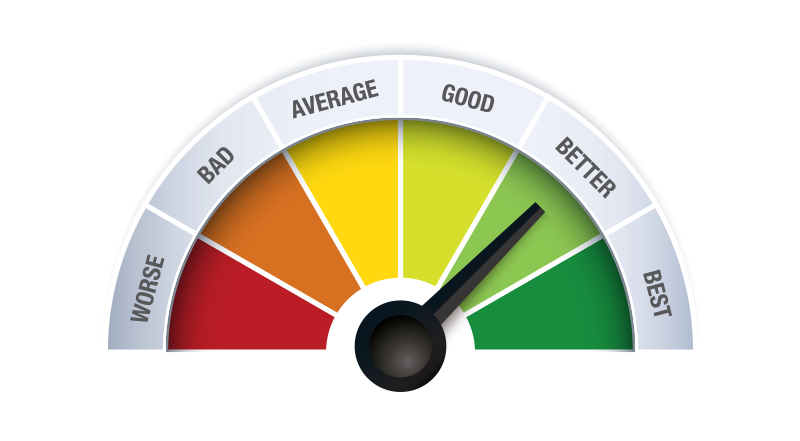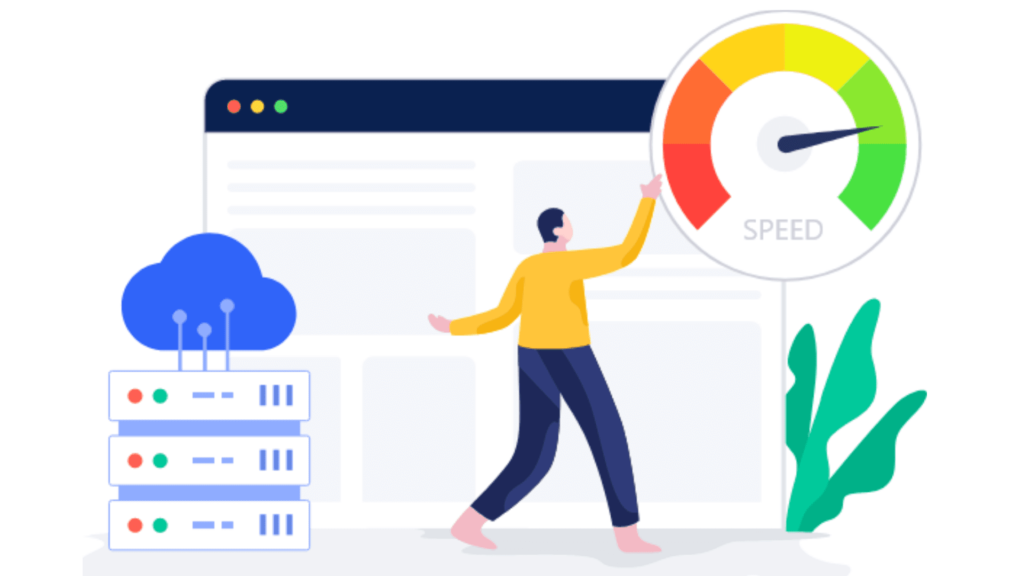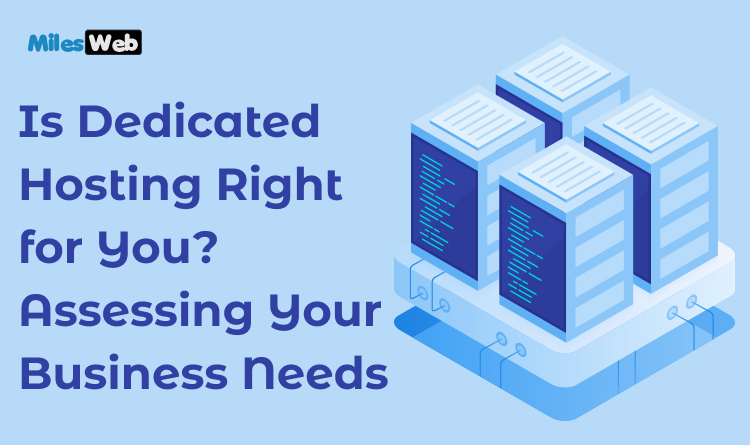
Page Speed is the amount of time it takes for a specific page to be downloaded from the servers that host the website and shown on the requesting web browser. The time it takes for the whole web page’s content to load on the requesting browser is referred to as the “page load time.”
If it takes a while for your web page to load, there may be a server issue. In addition to users disliking slow websites, Google does not tolerate them and your website’s ranking will suffer. If it takes more than 0.4 seconds for a website to load, it is slow. The ideal page load speed. The competitive advantages of online businesses are considered to be determined at this point in time.
The Importance of Page Speed in Search Engine Optimization:
The success of an online business is determined by page speed because Google has elevated it to a key ranking element. To keep your business at the top, a website performance improvement activity is required. Any online business is badly impacted by mediocre website performance. Users may become impatient with a slow-loading website and search for alternatives. Therefore, your competitor’s triumph. As “53% of mobile site visits are abandoned if pages take longer than 3 seconds to load,” we believe that lack of patience is currently the most prevalent characteristic in online user behavior. The good news is that increasing page speed is not hard.
Below are 10 ways to improve page loading speed:

1) Choose a performance-optimized hosting solution.
2) Compress and optimize your images.
3) Reduce the number of HTTP requests
4) Streamline your HTML
5) Upgrade your web hosting package:
6) Limit your Plugins
7) Cache your web pages
8) Enable browser caching
9) Minimize the inclusion of external scripts
10) Leverage a content delivery network (CDN)
1) Choose a performance-optimized hosting solution:
The management and operation of your website are significantly influenced by the hosting company you choose. That includes the speed of its pages. The worst error you can make is to accept subpar hosting in exchange for a lower monthly fee. Jason Ball, Director at Considered Content says “Cheap hosting often results in mediocre performance. It might involve splitting up server resources among several websites, which would slow down the load speeds of your pages.”
He also adds “On the other side, there are a few hosting options that are performance-focused and offer a strong platform built for speed. These providers often don’t provide shared hosting, so you’ll never have to be concerned about other websites using up all of your potential resources.”
2) Compress and optimize your images:
As per Tiffany Payne, Head of Marketing at Replace Your Docs “Images help your web pages look better and improve the quality of their content. Large photos, however, can also increase loading times. Compressing and optimizing your photos is thus one of the simplest techniques to speed up page loading. This can entail altering their file formats, enabling lazy loading, and lossy or lossless image compression.“ Your pages will load more rapidly if you minimize the “weight” of your photos by reducing their file sizes. You can accomplish this using a variety of picture optimization plugins.
3) Reduce the number of HTTP requests:
M Littman, Director of Webheads says “Reducing the number of HTTP requests a page makes is a very efficient way to speed up page load times. A web browser that accesses a page on a website pings the web server to request the files that make up the page’s content. The browser then renders the content on the page after receiving the required files from the server. Each file that makes up the content of the page is sent as a separate HTTP request by the browser. Your web page will take longer to load as a result of additional HTTP requests since there are more files on the page.“
4) Streamline your HTML:
“Improve the efficiency of your HTML code to speed up the websites. The amount of data that is transferred to consumers is increased by bloated HTML. When you manipulate the DOM, it might potentially affect JavaScript’s performance. You’re dealing with bloated HTML if you discover that your HTML pages have 5,000 or 6,000 lines of code before any content appears on the page.“ says Dean Lee, Head of Marketing at Sealions.
5) Upgrade your web hosting package:
Paul Somerville, Editor-in-Chief at Electric Scooter Guide says “Your website’s page load speed can be significantly impacted—positively or negatively—by the caliber of your web hosting plan. Particularly for larger, resource-intensive websites and websites with high traffic levels. Although it may be tempting to use a cheap shared (or grid) hosting platform, you should make it a top priority to invest in a high-performing VPS, managed, or dedicated web hosting platform. These packages frequently have dedicated resources, quicker technology stacks, and a variety of crucial options for perfectly alright your server.“
6) Limit your Plugins:
“Plugins enhance the look of your website, but they also have the potential to harm it. If your website has too many, you should consider eliminating some of them because having too many could cause security problems, technical problems, or even crashes in addition to slowing down your website. To find the plugins that cause problems or slow down your website’s loading time, I suggest using Plugin Performance Profiler or P3.” Says Holly Lawton, Sales, and Marketing at Pearl Scan.
7) Cache your web pages:
According to Daniel Foley, Founder of Daniel Foley SEO Consultancy “One of the best ways to make your website pages load faster is through caching. Caching reduces the amount of work required for the server to create and serve a web page to a visitor’s browser by saving copies of the files on your website. By requiring the server to spend fewer resources to load a page, caching can assist reduce Time to First Byte (TTFB). Your web pages can be cached in a variety of methods. This is something you can do at the server level, so your host takes care of it.“
8) Enable browser caching:
One type of caching you can use to speed up page loads is browser caching. This technique helps the browser to save a variety of data so it doesn’t have to reload the entire page every time a user sees it, including stylesheets, pictures, and JavaScript files. Alex Constantinou – MD at The Fitness Circle states “WP Rocket is a potent caching plugin you may utilize on your WordPress site, similar to W3 Total Cache. It makes use of cache pre-loading and page caching to enhance the speed of your pages and produce blazingly quick loading times.”
9) Minimize the inclusion of external scripts:
“Any scripted website features that require external loadings, such as external commenting systems, CTA buttons, or lead-generation popups, must likewise be loaded every time a page loads. These scripts, depending on their size, might make a website load slowly or not all at once (a problem known as “content jumping” or “layout shifting” that is especially irritating for mobile users).“ says Amar Vig, Managing Director at London-fs
10) Leverage a content delivery network (CDN):
A network of servers called a content delivery network (CDN), sometimes known as a “content distribution network,” can speed up the loading of web pages. It accomplishes this by storing and distributing copies of the static content on your website from servers located all over the world. A CDN complements your host rather than replaces it. Adam Garcia, owner at The Stock Dork adds “You can use a CDN to share copies of your site’s files among carefully chosen data centers in addition to the server that serves your main website. Shortening the distance that data requests must travel between browsers and the servers of your host, can increase performance. A CDN aids in lowering network latency and TTFBs by loading material for a web page from a server close to each visitor.“





